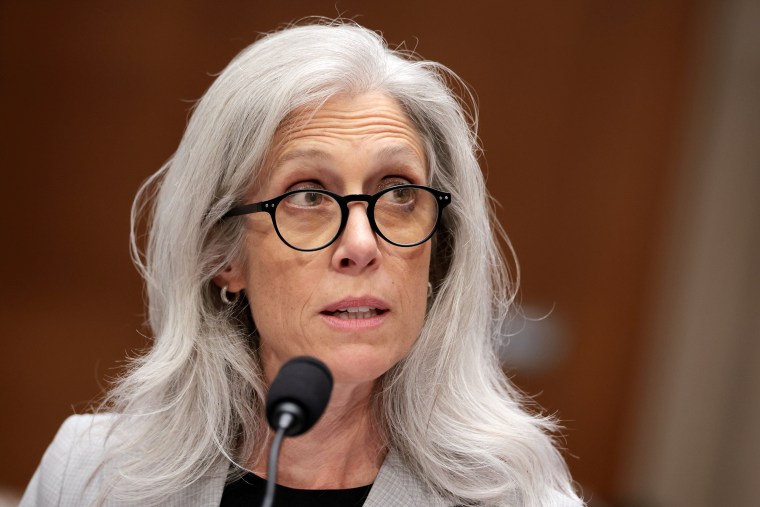The White House fired Susan Monarez as Centers for Disease Control and Prevention director Wednesday evening. The dismissal came hours after she refused to resign under pressure from health officials.
Monarez served barely a month since her Senate confirmation in July. Her lawyers said she “refused to rubber-stamp unscientific, reckless directives” from the Trump administration.
The firing sparked immediate resignations from top CDC officials. At least four senior leaders left their positions within hours of the announcement.
Mark Zaid and Abbe Lowell, Monarez’s attorneys, issued a sharp statement Wednesday evening. They said she “chose protecting the public over serving a political agenda.”
The White House responded swiftly to the lawyers’ comments. Spokesman Kush Desai said Monarez was “not aligned with the President’s agenda of Making America Healthy Again.”
The Department of Health and Human Services announced Monarez’s departure on social media. The post thanked her for “dedicated service to the American people.”
Dr. Debra Houry, the CDC’s chief medical officer, resigned hours later. She cited concerns about vaccine misinformation in her resignation letter.
Dr. Demetre Daskalakis also stepped down from his role leading immunization programs. He wrote that he could not serve due to “ongoing weaponizing of public health.”
Two other top officials joined the exodus. Dr. Daniel Jernigan and Dr. Jennifer Layden submitted resignations citing current conditions at the agency.
The leadership crisis comes during a turbulent period for the CDC. A gunman attacked the agency’s Atlanta headquarters on August 8.
Patrick Joseph White fired over 500 rounds at CDC buildings. The 30-year-old shooter believed COVID-19 vaccines had harmed his health.
DeKalb County Police Officer David Rose died responding to the attack. White was found dead from an apparent self-inflicted gunshot wound.
HHS Secretary Robert F. Kennedy Jr. has implemented major changes since taking office. He removed all 17 members of the CDC’s vaccine advisory committee in June.
Kennedy replaced the panel with his own appointees. Several new members are known COVID vaccine skeptics.

CDC Director Susan Monarez testifies during her Senate confirmation hearing on June 25, 2025. Photo by Kayla Bartkowski / Getty Images
The health secretary has cut $500 million in mRNA vaccine contracts. He also fired approximately 600 CDC employees in recent weeks.
The layoffs affected staff working on infectious diseases and environmental health. Courts blocked some firings but allowed others to proceed.
Monarez was Trump’s second choice for CDC director. The president withdrew his first nominee, Dave Weldon, hours before confirmation hearings.
Weldon faced criticism for his anti-vaccine views. He is a former Republican congressman and Kennedy ally.
The United States is experiencing its worst measles outbreak since 1992. Over 1,300 cases have been confirmed in 2025.
Vaccination rates have dropped below levels needed for disease control. National MMR coverage fell to 92.7% in 2023.
Health experts recommend 95% coverage to prevent outbreaks. Only 11 states currently meet this target.
The CDC shooting highlighted growing tensions around vaccine policy. More than 750 HHS employees wrote to Kennedy demanding he stop spreading misinformation.
They blamed his rhetoric for contributing to violence against health workers. The letter connected his statements to harassment of CDC staff.
Monarez had tried to reassure employees after the shooting. She canceled a planned safety meeting to attend an HHS meeting in Washington.
CDC staffers expressed shock at the rapid leadership changes. One employee said they were “stunned how fast this all happened.”
Dr. Mandy Cohen, former CDC director under Biden, criticized the departures. She said losing experienced leaders “leaves us less safe as a country.”
Michael Osterholm called the resignations “a serious loss for America.” The infectious disease expert blamed “failed leadership of extremists” at HHS.
The agency now returns to a leaderless state. The CDC has operated without a permanent director for most of Trump’s term.
Public health experts worry about the CDC’s future effectiveness. They fear political interference will undermine scientific decision-making.
The controversy highlights broader tensions over vaccine policy. Kennedy’s “Make America Healthy Again” agenda focuses on chronic diseases over infectious threats.
Critics argue the changes weaken America’s public health infrastructure. Medical organizations have called for Kennedy’s resignation.

